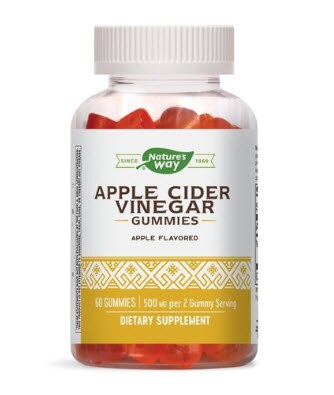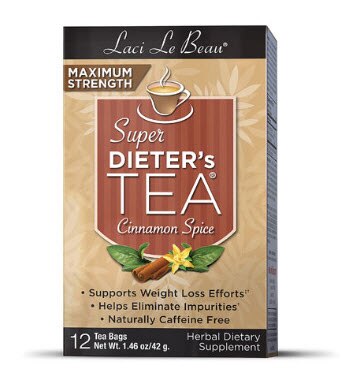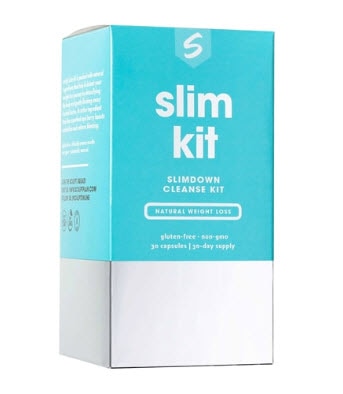From the gorgeous sight of autumnal leaves to the cozy scent of fireplaces ablaze, fall often arrives with a whole host of splendors—and yet it also tends to arrive with a higher number on the scale. Indeed, data demonstrates that people gain between one and seven pounds when the mercury drops during the fall and winter months.
An extra few pounds may seem innocuous, but over the years, weight can accumulate and place you at an increased risk for cardiovascular disease and diabetes—to say nothing of the freedom and happiness you may feel when you’re at your healthiest size and level of fitness.
With this in mind, here are five culprits behind autumn weight gain and five savvy strategies for nipping it—healthfully—in the bud.
Fall Weight Gain: Causes & Solutions
1. The cause: Your attire
It may seem basic, but once your summery dresses and shorts are tucked away and your autumn-appropriate leggings and roomy sweaters emerge, you can easily—even unknowingly—completely lose touch with your body. How could you possibly notice you’re gaining weight when you’re constantly all bundled up?
And yet, nourishing a profound and thoughtful relationship with your body is the number one key to achieving—and sustaining—genuine wellness and your healthiest weight.
When you nurture your body with utmost care and answer its requests compassionately—from eating when you’re hungry, hydrating when you’re thirsty, moving your limbs when you’re antsy, stretching when you’re achy, and resting when you’re sleepy—you attain a natural rhythm that promotes a healthy weight, regardless of the month, your clothes, or the temperature.
The solution: Engage in activities that strengthen your mind-body connection
A mounting body of evidence reveals that mindfulness has the power to bolster contentment, ease anxiety, mitigate depression—and, yes, maintain a fit, healthy shape. Mindfulness, bringing your awareness to the here and now, helps strip away the noise of life and aids in grounding yourself entirely in the present. This can organically encourage you to listen to your biological cues for food, sleep, hydration and exercise.
To this end, immerse yourself regularly in practices that foster mindfulness. Yoga, meditation, martial arts, journaling—all facilitate a bond between your brain and body.
2. The cause: Cooler temps
One of the many beauties of summer is that it effortlessly emboldens us to head outside for any number of activities, whether it’s swimming, surfing, golfing, tennis or hiking. Even when the temps skyrocket during the hotter months, there are few things more pleasurable than taking a stroll on a sultry, star-filled night.
The desire to get up and go naturally fades in the autumn months, when curling up next to a fireplace with hot cocoa and a book seems far, far more preferable.
A sedentary lifestyle, however, has been directly linked to a heap of complications, including Type 2 diabetes, heart disease, anxiety, mood swings and, of course, obesity—a complication that may lead to even more health issues.
The solution: Explore new gyms, studios and classes in your area
The answer is simple enough—to slink off the sofa and get your heart pumping—but the incentive to do so, which can fall to the wayside when school resumes, Summer Fridays conclude and bathing suit season is behind us, can be trying to find.
To jumpstart your motivation, check out indoor activities in your region. Perhaps a new, modern gym recently opened in your neighborhood, or that heated yoga class finally seems attractive now that has autumn has descended, or there’s a Taekwondo course that intrigues you. Paying for a session or membership will boost your commitment to take advantage of it—while also potentially introducing you to a whole new passion.
If that sounds unappealing, enlist an accountability partner in your neighborhood, family or office; a likeminded soul who will walk, run or bike with you even when the air crisps and snow starts to fall.
Lastly? Invest in the right attire to keep you warm when you venture outside. The return on dividends will be priceless.
3. The cause: Evolution—and hormonal fluctuations
Here’s a rather comforting note, depending on your perspective: We’re pre-programmed, if you will, to consume more calories during fall and winter.
Why?
Some scientists theorize that, similar to our enduring fear of being chased by a tiger (and the reason why we’re predisposed to the fight, flight, freeze response), we naturally eat more during the colder months to survive a potentially scarce, challenging winter, when inclement weather can render soil infertile and food unavailable.
What’s more, research reveals that seasonal changes lead to hormonal shifts—namely, by interrupting our levels of ghrelin and leptin, which play a fundamental role in hunger, satiation and metabolism. In turn, hunger accelerates and cravings intensify, compelling us to have “just one more” of those bite-sized Halloween chocolates.
The solution: Aim for hormonal equilibrium
Ghrelin and leptin are radically influenced by the amount and quality of your sleep, which explains why you may find yourself mindlessly reaching for sugary treats and carbohydrate-rich eats after pulling an all-nighter.
In other words, sleep is imperative—not only to ensure your hormones remain balanced but also to combat your evolutionary urges. Well-rested, and you’ll have substantially more resilience against those oh-so-temping cranberry muffins eyeing you from behind the counter.
In addition to practicing proper—and consistent—sleep hygiene, you may want to consider tackling sleepless nights with the two “m’s” associated with restorative slumber: Magnesium organically cultivates calm (a necessary component to feeling sleepy) while melatonin has the capacity to naturally support faster, deeper and sounder sleep.
4. The cause: Heightened stress
Summertime and the living’s easy is all too true of a lyric: The warmer months carry a carefree air that spurs us to laugh more, socialize more—and spend more time outside. While the lot of us still work during summer, it has an altogether different and more laidback energy than fall, when carpooling to school, end-of-the-year deadlines, and the impending, often-stressful holidays arrive with the same, swift speed as a sudden cold front (when you swear you were just wearing a tank top yesterday).
A slight increase in stress often brings fresh drive and enthusiasm, propelling us to knock tasks off our to-do list. Chronically experiencing intensified stress, however? Now that may put you into dangerous territory: it not only ups your risk of cardiovascular disease and adrenal fatigue, but it may also result in tipping the scale in an unwanted direction.
Thank hormones for the correlation. Stress increases the release of adrenaline—a chemical messenger that wisely prepares your body for literal battle by decelerating your metabolism and digestion and clinging to your energy stores for when you need them most. It’s a genius move on your body’s part.
With persistent stress, though, your cortisol levels also rise. This bolsters motivation, to be sure, but it also increases your appetite. (There’s a reason why the pandemic brought on weight gain—“stress eating” isn’t just a catchy phrase.) At the same time, your nervous system, in a dysregulated state, holds onto fat in case of an emergency—particularly weight around your midsection.
To add insult to injury, stress further alters your food preferences. You may have a hankering for eats high in fat, sugar and salt, in part because these foods impact your serotonin and dopamine levels and temper the psychological effects of stress. To top it all off, stress can disrupt your workout schedule and trick you into thinking that glass of wine is a brilliant way to ease your worries.
The solution: Supplement smartly and adopt a stress-busting diet
Foods that reduce anxiety and improve your emotional response to stress? Oh yes. When you’re feeling a case of angst coming on, dodge the Doritos and donuts and reach for whole foods, which, brimming with essential vitamins and nutrients, help stabilize blood sugar, stave off anger and irritation, and trigger a chiller, more blissful mood.
Turkey, for example, isn’t just lean, low in calories and packed with protein; it’s also high in calm-inducing tryptophan. Pistachios, meanwhile, slash blood pressure and reduce your heart rate, making it a go-to snack when you’re under severe stress. (Bonus points: the act of popping open a shell is a mindful activity that forces you to pause your frenetic pace.) Another great nut, cashews, are rich in zinc—a vital mineral that naturally reduces anxiety. And if you’re struck with a yen for something sweet? Indulge in dark chocolate: Studies show that dark chocolate—not milk—enhances circulation, lessens stress and provokes a sense of euphoria. (Just be sure to keep your consumption of it in check.)
Several herbal supplements also have the power to help you conquer stress. Adaptogens such as Rhodiola rosea and ashwagandha adjust to your body and organically advocate for resistance against mental and physical stress. One to consider: Vitacost Ashwagandha, which supports both calm and well-being.†
5. The cause: Liquid calories
From hot buttered rums tole chocolat chaud—and from eggnog cocktails to those uber-popular pumpkin spice lattes—fall is filled with irresistible drinks. And while sipping on cinnamon-infused apple cider is a lovely way to warm your body and heart, liquid calories add up incredibly fast.
A Grande Apple Crisp Oatmeal Macchiato at Starbucks, for example, costs 320 calories—the equivalent of a half of a turkey-and-cheddar sandwich paired with a real apple. A glass of eggnog will set you back nearly 350 calories—the same amount of calories found in, say, a creamy-chicken pesto salad, or a healthy-sized slice of carrot cake with cream cheese frosting.
What’s more, liquids may fail to keep you sated, while many have high amounts of sugar, which escalates hunger and sparks cravings. Spiked drinks, like those hot buttered rums, often loosen inhibitions and may provoke you to dive deep into that pot of fondue. But perhaps the biggest downside to calorie-rich drinks is that they’re largely devoid of protein, fiber, healthy fats and critical vitamins and minerals—the very things you need to maintain your optimal weight.
The solution: Research, judiciousness and steady blood sugar
A number of apps, such as MyPlate and Noom, provide nutrition information on everything from hot vanillas to chai lattes—and simply knowing the number of calories you’ll be ingesting might impel you to put on the brakes and sip on something healthier instead, like peppermint tea, or an Americano with a dash of almond milk.
Moreover, if you’re heading to a gathering—whether it’s a back-to-school BBQ, a Halloween party or an autumn wedding—make sure you don’t arrive famished, which may trigger you to fill up on warm-spiced sangria instead of crudites.
Above all? Keep returning to the first tip on this list. Having a solid, loving connection with your body will inspire you to make wise, healthy decisions: to know when to moderate yourself and when to indulge; to know when you require more and when you’ve had enough; to know when you need a vigorous workout or a soothing bath. Nail this and your weight will settle where it’s supposed to be—no matter the season of the year, or your life.
†These statements have not been approved by the Food and Drug Administration. These products are not intended to diagnose, treat, cure or prevent disease.




